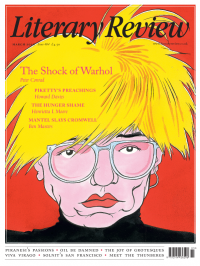Mary Hollingsworth
Popes on the Warpath
The Beauty and the Terror: An Alternative History of the Italian Renaissance
By Catherine Fletcher
The Bodley Head 419pp £25
It is one of the intriguing contradictions of the Renaissance that the art for which this period is justly famous was the product of a society mired in corruption and notorious for its violence – on the battlefield, in the street and in the bedroom. The Beauty and the Terror opens a window onto this other side of the Renaissance, which, as Catherine Fletcher points out, was far stranger and darker than is often realised.
The Renaissance was not only a landmark moment in the history of art; it was also a crucial phase in the wider history of Western culture, bringing radical and lasting change to the political, intellectual, cultural and religious structures of European society. This book concentrates on the 16th century, a period that ‘teeters between old and new’ and saw a revolution in communications thanks to the development of printing. Fletcher maps the era in a series of short chapters, some devoted to important political events and others to more general issues, an approach that enables her to touch on many aspects of this complex time. Above all, she shows how a lot of the shibboleths that define our more politically correct world were openly violated in the Renaissance, not least through the persecution of religious minorities, Jews, homosexuals, people of colour and women.
The book starts in 1492, a pivotal year in European history. It saw the Catholic victory over the Muslims of Granada and the emergence of a united Spain as a major power on the European stage. In Italy the death of Lorenzo de’ Medici had important ramifications for the

Sign Up to our newsletter
Receive free articles, highlights from the archive, news, details of prizes, and much more.@Lit_Review
Follow Literary Review on Twitter
Twitter Feed
It wasn’t until 1825 that Pepys’s diary became available for the first time. How it was eventually decrypted and published is a story of subterfuge and duplicity.
Kate Loveman tells the tale.
Kate Loveman - Publishing Pepys
Kate Loveman: Publishing Pepys
literaryreview.co.uk
Arthur Christopher Benson was a pillar of the Edwardian establishment. He was supremely well connected. As his newly published diaries reveal, he was also riotously indiscreet.
Piers Brendon compares Benson’s journals to others from the 20th century.
Piers Brendon - Land of Dopes & Tories
Piers Brendon: Land of Dopes & Tories - The Benson Diaries: Selections from the Diary of Arthur Christopher Benson by Eamon Duffy & Ronald Hyam (edd)
literaryreview.co.uk
Of the siblings Gwen and Augustus John, it is Augustus who has commanded most attention from collectors and connoisseurs.
Was he really the finer artist, asks Tanya Harrod, or is it time Gwen emerged from her brother’s shadow?
Tanya Harrod - Cut from the Same Canvas
Tanya Harrod: Cut from the Same Canvas - Artists, Siblings, Visionaries: The Lives and Loves of Gwen and Augustus John by Judith Mackrell
literaryreview.co.uk